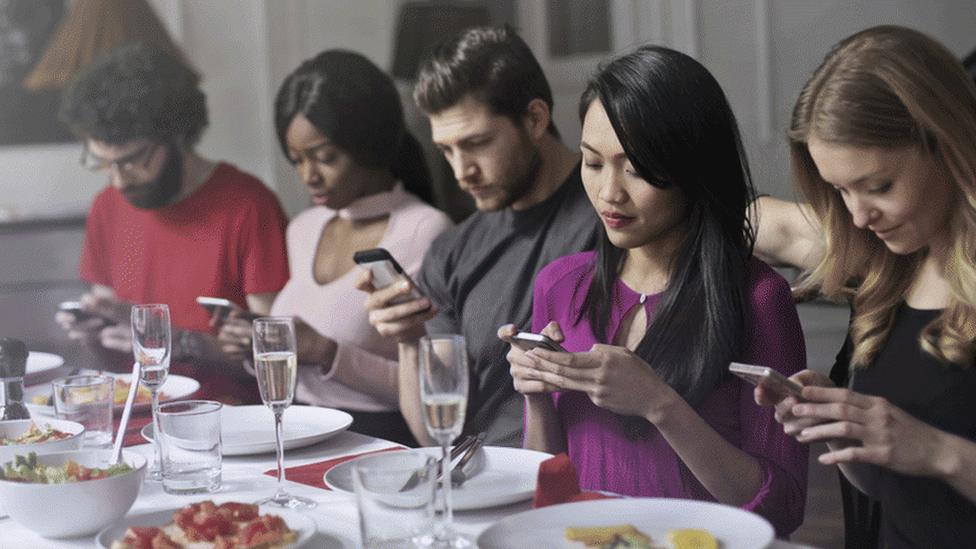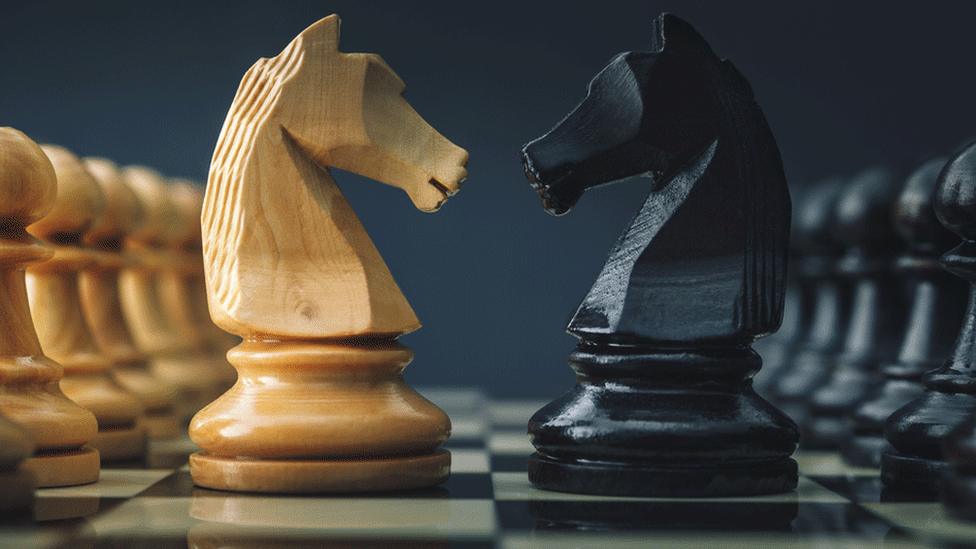Tech Tent - Glued to our phones
- Published
Was this the week that we woke up to our addiction to smartphones?
That is just one of the topics we discuss in a special edition of Tech Tent live from the Cheltenham Science Festival.

Stream or download, external the latest Tech Tent podcast
Listen live every Friday at 15.00 GMT on the BBC World Service

This week, Apple spent quite a lot of the opening keynote speech of its Worldwide Developers Conference talking about ways to make us use the iPhone less. It introduced features which it said would allow users to "take control of the time they spend interacting with their devices."
You will be given a read-out of how long you spend doing various things on your phone and the means to ration it. I, for instance, would be able to make sure I spent no more than an hour a day staring at Twitter. These tools will also allow parents to have more granular control of what their children do on their phones.
Now some pointed out the irony of this message from a company which was also promoting all sorts of whizzy new augmented reality apps to keep us glued to our phones.
But Prof Matt Jones, a computer scientist who is researching our relationship with our devices, is not so cynical and points out that other companies have been pushing the same message: "When big companies like Google, Facebook and Apple all start publicly talking about these issues, then clearly there are for them strong signals in the market that this is a debate that people want to have.
"It is stupid business, bad marketing, if people fear that they're being harmed by anything that they buy."
We caught up with Prof Jones after his event at Cheltenham titled, The Trouble with Mobile Phones. I put it to him that this was a bit like the moral panic in the 1960s over whether children were watching too much television and asked him if there was any evidence that mobile phones were addictive.
"Certainly socially we are perhaps aware that we are perhaps disconnecting from each other," he said."How many times have you really looked your colleagues in the eye like I'm looking at you now? You'll be glancing down, you'll be distracted by the digital."

Are we all spending too much time on our phones?
Guilty as charged, I'm afraid.
Also on this week's programme from Cheltenham we discuss whether there is any point in playing chess, or the Chinese game of Go, now that computers have mastered them.
Chess grandmaster Matthew Sadler tells us he gave up the game a couple of years after Garry Kasparov's 1997 defeat at the hands of IBM's Deep Blue. He thought professional chess was over - but has changed his mind and now sees computers as collaborators: "Nobody questions they are much stronger but they are also used as a tool to help prepare."
Natasha Regan, who plays both chess and Go at a high level is also optimistic. Having seen what happened in chess she was not as surprised as some other Go players when DeepMind's AlphaGo program conquered the game. She thinks it has brought a new dimension to Go.

Is it worth playing chess if a machine can beat you?
"It's full of beautiful intuitive ideas," she says, "it's introduced a whole lot of new moves to try in your games."
And she thinks there is a future for both chess and Go: "There's still a place for humans to play against humans."
We also hear about the science behind superheroes. Prof Clifford Johnson, a theoretical physicist is a scientific advisor to Marvel.
Now you might think films like Thor: Ragnarok and Avengers Infinity War had very little science in them. But tune in to Tech Tent to hear Prof Johnson explain how he helps bring scientific coherence to the Marvel universe.
- Published2 February 2018